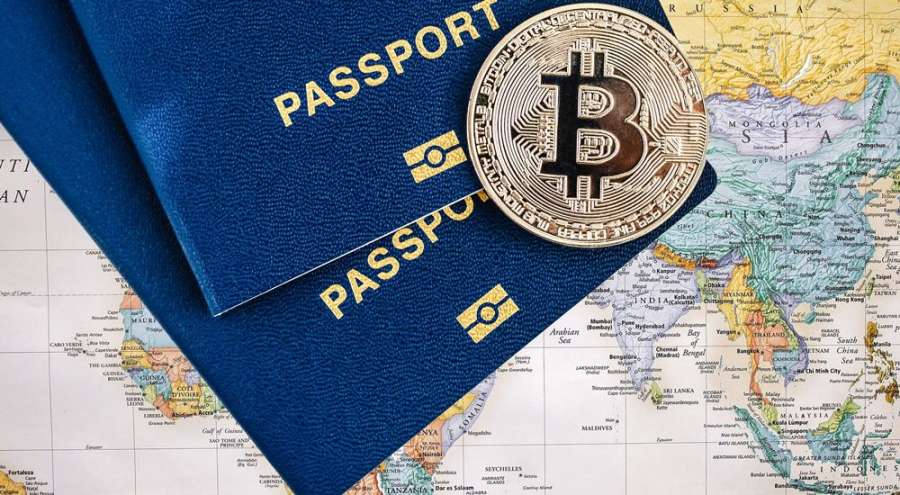Starting a casino business in India presents an intriguing venture within a complex legal and regulatory landscape. Casinos, known for their entertainment and gaming offerings, have gained popularity worldwide. In India, the establishment of casinos involves navigating a web of legal restrictions and regional regulations. This guide serves as a compass, shedding light on the fundamental aspects of initiating a casino business in India. From understanding the legal framework and licensing procedures to grasping the financial and operational intricacies, we embark on a comprehensive journey to explore the nuances of setting up a casino business in the Indian context. Aspiring entrepreneurs seeking to dive into the world of gaming and entertainment can find essential insights within this guide to chart their path towards establishing a legitimate and successful casino venture.

Why Online Casino Operators Are Turning to India as Their Prominent Market
With a population surpassing 1.3 billion, it’s a fascinating fact that India is poised to overtake China as the world’s most populous nation by 2028. This impending demographic shift underscores the immense potential India holds as a thriving market. Bolstering this potential is India’s rapidly expanding technology infrastructure, which is propelling its online iGaming sector toward unprecedented growth.
Already boasting a gambling industry estimated at a substantial $60 billion annually, India’s gaming landscape is merely in its early stages of development. The allure becomes even more enticing when one considers the escalating number of individuals gaining access to the internet each year.
As online connectivity continues to penetrate previously untapped corners of the nation, India’s online casino industry is on the brink of a transformative explosion, promising new horizons for operators eager to tap into the country’s burgeoning market.
Licensing Landscape for Gambling in India
Gambling regulations in India exhibit a state-by-state variance, owing to the autonomy states possess to craft their own gambling laws. This divergent approach is evident in the contrasting stances taken by different states; for instance, Goa sanctions land-based casinos while others prohibit them outright.
In this intricate web of regulations, certain gambling activities like organized betting remain generally restricted, barring a few exceptions such as lotteries and horse racing.
On the national front, three legislative acts stand out:
- The Public Gambling Act of 1867: This historical statute prohibits the operation of public gambling houses. Although not targeting online casinos explicitly, it’s essential to acquaint oneself with this law.
- The Prize Competition Act of 1955: Parliament enacted this act to oversee games offering prizes as rewards. The legislation pertains to prize competitions involving solving puzzles, numerical, alphabetical, crossword, and picture contests, with prizes exceeding 1,000 Rupees. Notably, this law pertains exclusively to prize competitions, not gambling activities.
- The Information Technology Act of 2000: Focusing on cyber activities, this national act intriguingly lacks explicit reference to “Gambling or Betting.” The interpretation of this act has been left to the courts, which have refrained from definitive examination.
Crucially, the situation evolves when considering Indian casinos’ promotional activities related to online gambling games like casinos, sports betting, and bingo. While Indian casinos are prohibited from promoting such activities, non-Indian casino companies (offshore entities) are legally allowed to operate sites catering to Indian players.
Payment Ecosystem in India
Understanding India’s payment landscape is essential when venturing into the online casino business, as it influences how transactions are conducted, funds are transferred, and operational fees are managed. Choosing an appropriate online payment system provider (PSP) requires considering critical factors:
- Security and Anti-Hacking Measures
- Anti-Fraud Capabilities
- Swift Payment Processing
- Multi-Currency Support
- Diverse Payment Methods
- Strong Reputation, Legitimacy, and Online Support
Let’s delve into some of India’s popular online payment methods:
Paytm:
A prominent Indian e-commerce payment and fintech company, Paytm offers diverse online services like mobile recharges, bill payments, travel bookings, and more. It enables in-store payments at various outlets through a QR code. Valued at $10 billion USD in 2018, Paytm plans to launch its IPO in 2022.
GPay:
Google’s GPay is a popular choice, enabling instant payments and money transfers using existing bank accounts. It supports all banks aligned with BHIM UPI, offering an API-based system for seamless integration.
Unified Payments Interface (UPI):
Developed by the National Payments Corporation of India, UPI is a real-time payment system regulated by the Reserve Bank of India. It facilitates inter-bank transactions via mobile platforms. With 142 banks on board as of March 2019, UPI processes millions of transactions monthly.
Visa and Mastercard:
Visa and Mastercard remain secure options for online transactions in India. Although their usage has slightly declined due to newer digital PSP alternatives, offering these established card options provides players with diverse payment choices.
The Indian payment ecosystem is rapidly evolving due to enhanced connectivity and technological advancements. As the online casino industry taps into India’s vast market potential, selecting the right payment solutions becomes integral for fostering player trust, seamless transactions, and sustainable growth.
C-Suite Management Roles:
- Director / CEO / Founder: Leading the strategic vision, business development, and overall management.
- Chief Technical Officer: Overseeing technical infrastructure, platform development, and IT operations.
- Chief Legal Officer: Ensuring compliance with gambling regulations, licensing, and legal matters.
- Chief Financial Officer: Managing financial operations, budgeting, and financial strategy.
- Chief Operating Officer: Supervising day-to-day operations, optimizing efficiency, and performance.
Operational Roles:
- Website Operations: Managing website’s user experience (UX) and user interface (UI), ensuring visibility, traffic optimization, regular maintenance, and updates.
- Project Management: Coordinating with stakeholders and vendors, overseeing project timelines, and handling various tasks.
- Business Analytics: Analyzing data to derive insights, tracking key metrics, and making data-driven decisions.
- Software Development: Building and maintaining the website’s backend and frontend functionalities.
- Finance: Handling financial transactions, including deposits, withdrawals, procurement, and banking campaigns.
- Marketing: Creating and executing player acquisition and retention campaigns, promoting the brand, and enhancing visibility.
- Legal and Compliance: Ensuring adherence to online gambling regulations, managing licensing requirements, and legal compliance.
- Fraud Control: Detecting and preventing any fraudulent or suspicious activities within the platform.
- Customer Service and Engagement: Addressing player complaints, inquiries, and providing excellent customer support to enhance player engagement.
A well-structured team consisting of these essential roles is crucial for establishing a successful online casino. Each role contributes to the smooth operation of the platform, offering a secure and enjoyable experience for players while maintaining compliance with legal and regulatory frameworks.
Conclusion:
Starting an online casino in India requires careful consideration of legal regulations, payment systems, and a well-structured team to manage various aspects of the business. India’s large population, increasing internet connectivity, and the growing popularity of online gambling make it an attractive market. However, success hinges on complying with laws, offering a secure platform, providing diverse payment options, and delivering an engaging and enjoyable experience for players. As the industry evolves, staying updated with regulations and player preferences is key to sustaining a successful online casino venture in India.
Also Read:
- How Consultations Can Help Fintech Companies
- 7 Benefits Of Hiring A Moving Company For Your Business Move
- The Benefits of a Strong HRM Strategy for Your Business
- Why are equities the best way to fight inflation?

Hello, I am Tanisha Kriplani, graduated in computer science from Delhi University. I am passionate about web content writing and have a strong interest in Data Analytics and Data Engineering.












